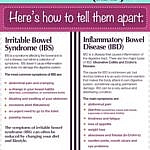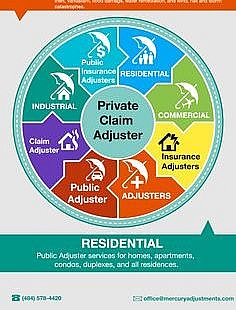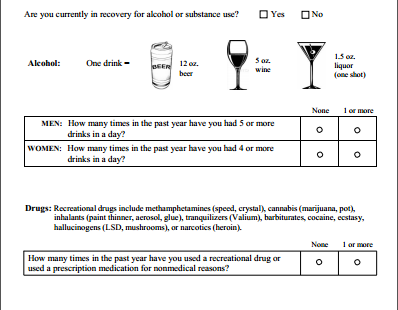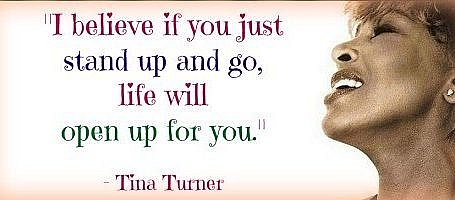The first step to starting over at 50 is to identify your assets and liabilities. You’d be surprised to learn how many assets you have!
Here’s a guide to different types of assets, and offer tips for dealing with liabilities when you’re starting over at 50. At the end of this article, I list resources for starting over at 50.
Here’s what a 55 year old woman wrote, in my article How to Survive a Loveless Marriage:
“My husband’s job has taken us around many countries for all of our married life and I eventually had to give up my own career. When I was bringing up children it didn’t matter, I was delighted to spend time with them, but now they have left home I am left with negligible self-esteem. I feel constantly frustrated and angry. I put this down to the lack of a satisfying job and marriage. If we lived in one place I might have developed my own interests, friends and a career. As it is, I feel I have no options. I am 55 and living in overseas in a country I can’t contemplate staying in. The possibility for finding work seems slim even if I returned to my home country. I don’t have anywhere to stay and can’t think where to start. I have looked at a lot of blogs for help for women in my situation, but my life is so mixed up and unusual I haven’t found anything yet. The fear of making things worse is very real.”
I hope my thoughts on starting over at 50 – and learning how to identify your assets and liabilities – helps you and other readers who are facing a new beginning.
One of the most damaging thoughts when you’re starting over at 50 is the belief that you are the only one in this situation. That isolates and paralyzes you. Whatever situation you’re in, it’s important to know that you are NOT the only woman who has faced this! You will survive, just like the women before you have.
An Inconvenient Posting – An Expat Wife’s Memoir of Lost Identity by Laura Stephens is a very interesting book about a woman who lost her sense of who she was when she and her husband were posted overseas. Reading books about how other women reconnected with themselves is a great step towards starting over at 50, whether you’re an expat or not.
Starting Over at 50 – What Are Your Assets?
First, let’s discuss what assets are. Assets are resources that we all have – and I am 100% sure you can identify more assets than you thought possible!
Emotional assets include self-awareness, strength, intelligence, emotional health, resilience, and the ability to cope with stress. A huge emotional asset is the ability to be positive and grateful when you’re starting over at 50. Spirituality is another emotional asset, and so is the ability to communicate effectively.
Personal or social assets include friends, family, peers, and people we haven’t even met yet. For example, if you’re starting over at 50 and think you have no personal assets, you might be surprised to know that at this moment you have just connected with one! I am now one of your assets, because I am a source of support, comfort, and connection.
Financial assets don’t just include cash or credit, they include the ability to budget your money, manage your money, and live on what you earn. A healthy relationship with money is a huge financial asset – and it will help when you’re starting over at 50. A career is a wonderful asset…but we can’t have everything, can we?
Community assets include organizations that help women who are starting over at 50 or any age, such as social services, the police, victim services, support groups, etc. Websites and blogs that encourage and support women are community assets as well.
Your physical health is another asset when you’re starting over at 50. Are you mobile and able-bodied? Be grateful. Maybe you’re struggling with an emotional health issue like depression or a physical health issue such as ulcerative colitis (like I am)…but you can walk and talk and speak. Those are assets that will help you start over at 50 or any age!
How to Identify Your Assets
Step back, and look at your self objectively
It may not seem like you have “marketable skills” to find a new job or start a new career – but you are more valuable than you think! Your experience living overseas, supporting your husband and raising your kids, is a hugely valuable asset. You can’t see how unique you are because you’re wrapped up in your emotions and fears.
I lived and taught in Africa for three years, and I shrug it off as a normal, common part of life. But when I tell people I lived in Africa, they are impressed and thrilled! Sometimes I forget that living and working oversees is an amazing thing to do. And that’s the tricky part about assets: sometimes you can’t see them because you’re living right in the middle of them. You take them for granted – and this makes starting over at 50 a bit more difficult.
If you can’t identify your assets, read Finding Your Flow – How to Identify Your Flow Assets and Liabilities – The Keys to Peak Performance Every Day by Bruce Jackson. This book will help you figure out what’s holding you back, and give you the tools you need to start over at 50.
Start taking control of what you can control
I found a wonderful article on starting over at 50 or any age, by Dalonika McDonald of the Texas Department of Criminal Justice/Parole Division. She says:
“It is time for everyone, no matter what you’re starting over from; to take control over your life. Flush all forms of complaining or being the victim. Take the driver’s seat, whether you’re coming from prison or a palace. Find the new you.” – from How Do I Start All Over Again? Effective Methods for a New Start.
McDonald works with women who are transitioning from prison life. I haven’t discussed the liabilities part of my “how to identify assets and liabilities” claim yet – but I am certain that leaving prison and starting over with a criminal record is perceived as a liability by both the woman and the community she eventually settles in.
However, a criminal record doesn’t have to be a liability. Nor does not having a career for the last 20 or 30 years, or living overseas and not having anywhere to live or work when you return home, or not knowing how to choose a career.
Your liabilities will identify themselves, I trust. They will rear up – and you will deal with them.
The trick to starting over at 50 is to learn how to live in uncertainty, and to trust that everything will work out fine. Read books like Embracing Uncertainty: Breakthrough Methods for Achieving Peace of Mind When Facing the Unknown by Susan Jeffers.
What do you do after identifying your liabilities? When you’re starting over at 50, it’s important to know your liabilities. Maybe you aren’t educated, skilled, or marketable. Maybe you relied on your husband to take care of you while you took care of him and raised your children.
I encourage you to be aware of your liabilities – but don’t let them stop you from moving forward and starting over at 50.
Feel your fear – because it is a liability – and act anyway
Of course you’re scared of making your life worse when you’re starting over at 50! That’s a normal, natural fear. The way to cope with fear is to feel it and express it. Feel the Fear . . . and Do It Anyway by Susan Jeffers is a wonderful resource on coping with fears. It’s my favorite book on gaining courage and strength start a fresh new life.
Don’t let fear stop you from starting over at 50. As McDonald said in her article about starting over, don’t let the monster of fear stop you from moving forward in your new life.
One way to start over at 50 is to join a MeetUp group! Here’s one, to give you an idea of what to look for: Women Starting Over After 50 Meetup Group.
Resources for Starting Over at 50

It’s Only Too Late If You Don’t Start Now: How to Create Your Second Life at Any Age by Barbara Sher.
This Is Not the Life I Ordered: 50 Ways to Keep Your Head Above Water When Life Keeps Dragging You Down by Deborah Collins Stephens, Michealene Cristini Risley, Jackie Speier and Jan Yanehiro.
If you’re starting over at 50, have you identified your assets and liabilities? How will you make the most of your strengths, and deal with your weaknesses? I welcome your thoughts below.




